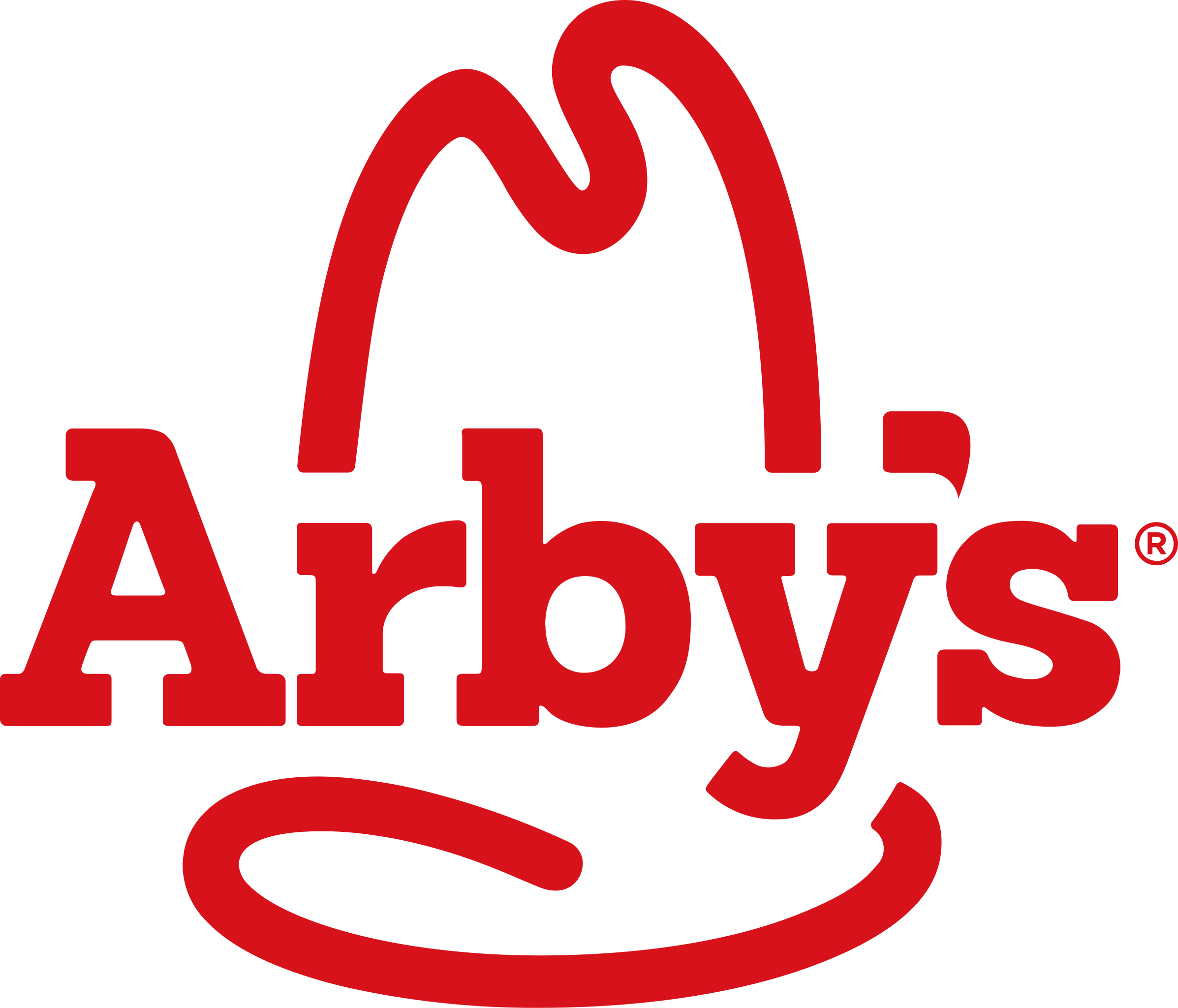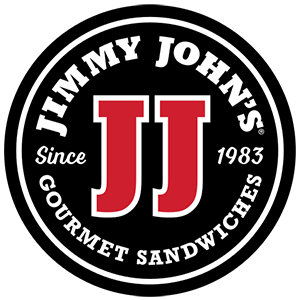Arby’s Franchise in 2025: Costs, Fee & FDD
Curious about investing in an Arby’s franchise? Our latest analysis explores the costs, potential profits, and unique advantages of this iconic fast-food chain. Discover why Arby’s standout menu and robust support system might be your key to franchise success. Click through for a detailed look!
Table of Contents:
Arby’s, founded in 1964 by Forrest and Leroy Raffel, has carved a unique niche in the fast-food industry with its slogan “We Have the Meats.” The Raffel brothers wanted to offer an alternative to the typical hamburger chains, focusing instead on high-quality roast beef sandwiches. Over the years, Arby’s has grown into one of the largest sandwich chains in the United States, known for its distinct menu and innovative approach to fast food, both traditional restaurants and non traditional restaurants.
As a qsr franchise restaurant brand, Arby’s core product is its signature roast beef sandwich, but the menu has expanded to include a variety of deli-style sandwiches, wraps, salads, and sides. The brand is also known for its curly fries and Jamocha shakes, which have become customer favorites. Arby’s caters primarily to meat lovers who seek a quick, satisfying meal that goes beyond the typical fast-food offerings. Their customer base includes a broad demographic, from busy professionals to families looking for a hearty meal.
Arby’s currently boasts over 3,300 locations across the United States and several other countries. The brand has a significant presence in Canada, Turkey, and South Korea, among other international markets. Serving millions of customers daily, Arby’s continues to expand its footprint, aiming to bring its unique offerings to a global audience. The franchise’s ability to maintain consistent quality and service across its vast network is a testament to its robust operational framework.
Arby’s offers a comprehensive support system for its franchisees, including extensive training programs and ongoing operational assistance. New franchisees undergo rigorous training to ensure they can uphold the brand’s standards. The support system includes help with site selection, construction, marketing, and day-to-day operations. Additionally, Arby’s provides continuous support through regular updates and training sessions to keep franchisees abreast of new products and industry trends, ensuring they are well-equipped to succeed.

Arby’s Franchise Insights
- Unique Market Position: Arby’s stands out in the fast-food industry with its focus on high-quality meats and deli-style sandwiches, setting it apart from the typical burger-centric chains and appealing to a broad range of meat lovers.
- Rapid Expansion: With over 3,300 locations worldwide and a robust international presence, Arby’s has demonstrated significant growth, showcasing a successful franchise model and a strong market demand.
- Strong Financial Performance: Arby’s franchises typically achieve impressive gross sales ranging from $1.1 million to $1.8 million annually, reflecting the brand’s strong customer loyalty and effective market positioning.
- Innovative Marketing: Known for its memorable “We Have the Meats” slogan and creative marketing campaigns, Arby’s consistently engages its customer base, driving brand recognition and repeat business.
Arby’s Franchise Key indicators
Growth YOY (%)
1%
vs industry 0%
3-year Growth (%)
7%
vs industry 3%
Total U.S. Franchised Units
2,316
3-year Failure Rate
5%
vs industry 11%
How much does it cost to open an Arby’s franchise?
Understanding the potential investment size and capital requirements is crucial when considering opening an Arby’s franchise. These financial commitments, including initial franchise fees, equipment costs, and ongoing operational expenses, impact the feasibility and profitability of the venture. Thoroughly evaluating these factors ensures that potential franchisees are prepared for the financial responsibilities and can make informed decisions about their ability to sustain and grow the business, ultimately contributing to long-term success.
Min & Max Investment
Opening an Arby’s franchise involves several key costs, which are outlined in Item 7 of the Franchise Disclosure Document (FDD). Here is a breakdown of the costs to open an Arby’s from the most recent Item 7:
| Type of Expenditure | Minimum Investment | Maximum Investment |
|---|---|---|
| Development Fee | $6,250 | $12,500 |
| Franchise Fee | $0 | $37,500 |
| Fees and Expenses During Training | $5,000 | $23,400 |
| Lease Deposits and Payments | $12,000 | $50,000 |
| Site Costs | $0 | $451,000 |
| Landscaping | $0 | $45,000 |
| Civil & Architectural Drawings / Professional Fees | $40,000 | $150,000 |
| Zoning / Permitting Costs | $1,000 | $112,000 |
| Building Costs | $400,000 | $850,000 |
| Equipment | $225,000 | $325,000 |
| Computer Hardware and Software/ POS | $32,000 | $55,000 |
| Décor Package | $11,000 | $35,000 |
| Signage & Drive Thru | $44,000 | $88,000 |
| Pre-Opening Wages | $21,300 | $41,200 |
| Opening Inventory | $18,000 | $26,000 |
| Insurance | $8,400 | $14,400 |
| Working Capital / Additional Funds | $33,000 | $100,000 |
| Rent (one month) | $4,000 | $10,000 |
| Business Licenses, Health Permits, Utilities Deposits | $1,000 | $25,000 |
| Total | $861,950 | $2,451,000 |
Item 7 in the Franchise Disclosure Document (FDD) is the “Estimated Initial Investment” section. It outlines the total costs a franchisee can expect to incur when starting a franchise, including the initial franchise fee, equipment, inventory, real estate, and other startup expenses. This section is crucial because it provides potential franchisees with a detailed understanding of the financial commitment required, helping them assess affordability and plan their investment strategy effectively.
Required Capital
To open an Arby’s franchise, the required capital involves both the initial investment costs and a net worth requirement set by Arby’s. Let’s take a closer look below:
- Initial Investment As shown above, the total estimated initial investment ranges from roughly $862,000 to $2,451,000. This includes all the startup costs such as the franchise fee, real estate, construction, equipment, initial inventory, and additional funds for initial operating expenses.
- Liquid Assets and Net Worth Requirement Franchisees are usually expected to have at least $500,000 in liquid assets and a net worth of around $1 million. These figures are estimates based on industry standards and Arby’s typical financial requirements for franchisees. For the most accurate and up-to-date information, it’s advisable to contact Arby’s directly or consult their official franchise documentation.
How much does an Arby’s franchise owner make?
Calculating the salary of an Arby’s franchise owner involves analyzing gross sales to determine total revenue, assessing operational efficiency to understand profit margins, and accounting for franchisor fees and additional expenses such as rent, utilities, and payroll. Effective management of these factors can significantly impact the profitability and financial success of an Arby’s franchise owner. This comprehensive financial analysis helps estimate net profits, from which the owner’s salary can be derived. A clear understanding of these factors ensures accurate salary projections and financial planning for sustainable business operations.
Arby’s Revenue & Gross Sales
Arby’s franchises typically achieve gross sales that can vary significantly based on location and market conditions. The average gross sales for an Arby’s franchisee is estimated to be $1,263,000. Effective management and strategic location can lead to higher sales and better profitability.
Arby’s Franchise Operational Costs
Careful planning and budgeting for these operational costs are crucial for the financial health and success of your Arby’s franchise. The primary operational costs for an Arby’s franchise include:
- Real Estate Leasing or purchasing a suitable location, along with property taxes.
- Equipment Purchasing kitchen equipment, furniture, and fixtures.
- Inventory Initial and ongoing costs for ingredients and packaging materials.
- Labor Wages for employees, including kitchen staff and customer service personnel.
- Utilities Costs for electricity, water, and other utilities.
- Marketing Local advertising and marketing expenses.
- Insurance Coverage for the business, including liability and property insurance.
- Technology Point-of-sale systems and other necessary technology infrastructure.
- Miscellaneous Expenses Additional costs such as licenses, permits, and professional services (e.g., accounting).
Arby’s Franchise Fees
Owning an Arby’s franchise involves ongoing fees that franchisees are required to pay to operate. These fees include:
- Royalty Fee Typically 4% of gross sales.
- Advertising and Marketing Fees 4.2% of gross sales, contributing to both national and local advertising funds.
- Additional Fees Fees for training programs, technology, and other items provided by Arby’s.
These ongoing fees are essential to consider when planning the financial aspects of owning and operating an Arby’s franchise. They cover the costs of brand support, advertising, and ongoing operational assistance provided by Arby’s.
Arby’s Franchise Earnings
The earnings of an Arby’s franchise owner can vary significantly based on location, sales volume, operational efficiency, and cost management. On average, Arby’s franchise owners can expect to earn a significant income.
Assuming an owner-operated location, a typical Arby’s franchisee might achieve an EBITDA (Earnings Before Interest, Taxes, Depreciation, and Amortization) of roughly 15% of gross sales. With average gross sales of $1,263,000, this would translate to an estimated EBITDA of $190,000 per year.
If the franchisee is semi-absentee, then earnings will be significantly lower based on the costs of having a hired manager.
How to Open an Arby’s Franchise?
Becoming an Arby’s franchisee involves a comprehensive process designed to ensure both the franchisee and the franchisor are well-prepared for a successful partnership. Here’s a step-by-step overview from initial inquiry to the start of operations:
1. Initial Inquiry
- Contact Arby’s: You or your franchise consultant submits an initial inquiry basic information about your interest and background.
- Research: Conduct thorough research on the Arby’s franchise, including seeing all of the information available on the Vetted Biz franchise intelligence platform, including access to the most recent Franchise Disclosure Document (FDD).
2. Application and Qualification
- Franchise Application: Complete the franchise application form, detailing your background, financial status, and business experience.
- Initial Screening: Arby’s team reviews your application to assess your qualifications and financial capability to meet the franchise requirements.
3. Disclosure and Review
- Franchise Disclosure Document (FDD): Receive the FDD, which includes detailed information about the franchise, fees, obligations, and financial performance.
- FDD Review: Thoroughly review the FDD, possibly with legal and financial advisors, to ensure you understand all aspects of the franchise agreement.
4. Due Diligence
- Background Check: Undergo a background check and financial verification to confirm your eligibility.
- Discovery Day: Attend a Discovery Day at Arby’s headquarters, where you’ll meet the corporate team, tour facilities, and gain a deeper understanding of the franchise operations.
5. Approval and Agreement
- Franchise Approval: If approved, you’ll receive an official confirmation from Arby’s.
- Sign Franchise Agreement: Review and sign the franchise agreement, making it official. Pay the initial franchise fee at this stage.
6. Site Selection and Development
- Site Selection: Work with Arby’s real estate team to find and secure a suitable location for your restaurant.
- Lease Negotiation: Negotiate and sign the lease agreement for your selected site.
- Restaurant Design and Construction: Collaborate with Arby’s design and construction teams to build and equip your restaurant according to brand standards.
7. Training and Preparation
- Initial Training: Attend Arby’s comprehensive training program covering operations, management, marketing, and customer service.
- Staff Hiring and Training: Recruit and train your staff with support from Arby’s training team to ensure consistency and quality.
8. Pre-Opening
- Marketing and Promotion: Develop and execute a pre-opening marketing plan to build anticipation and attract customers.
- Final Preparations: Ensure all operational systems, supplies, and inventories are in place, and conduct final inspections.
9. Grand Opening and Operations
- Soft Opening: Conduct a soft opening to test operations and make any necessary adjustments.
- Grand Opening: Officially launch your Arby’s restaurant with a grand opening event, supported by marketing initiatives.
- Ongoing Support: Receive ongoing support from Arby’s corporate team, including operational guidance, marketing support, and continuous training to help you run a successful business.
Pros & Cons
Pros
Established Brand Recognition: Arby’s is a well-known brand with a loyal customer base and strong market presence, which can attract customers and drive sales from day one.
Unique Product Offering: Arby’s focuses on high-quality meats and deli-style sandwiches, differentiating it from typical fast-food chains and appealing to a broad range of meat lovers.
Comprehensive Support System: Arby’s provides extensive support, including site selection, construction assistance, training programs, and ongoing operational guidance, ensuring franchisees are well-prepared and supported.
Strong Financial Performance: Arby’s franchises typically achieve impressive gross sales, with annual revenues ranging from $1.1 million to $1.8 million, reflecting the brand’s strong customer loyalty and effective market positioning.
Innovative Marketing: Arby’s is known for its memorable marketing campaigns and strong social media presence, which drive customer engagement and brand recognition, supporting sustained revenue growth.
Cons
High Initial Investment: The initial investment for an Arby’s franchise can be substantial, ranging from roughly $862,000 to $2,451,000, which might be a barrier for some potential franchisees.
Operational Complexity: Running an Arby’s franchise involves managing a wide range of products and maintaining high operational standards, which can be complex and demanding for new franchisees.
Ongoing Fees: Franchisees are required to pay ongoing royalty and advertising fees (8% and 4.2% of gross sales, respectively), which can impact profit margins.
Market Competition: Despite its unique positioning, Arby’s still faces significant competition from other fast-food chains and quick-service restaurants, which can affect market share and sales.
Economic Sensitivity: The fast-food industry is sensitive to economic fluctuations and consumer spending habits, which can impact sales and profitability, especially during economic downturns.






